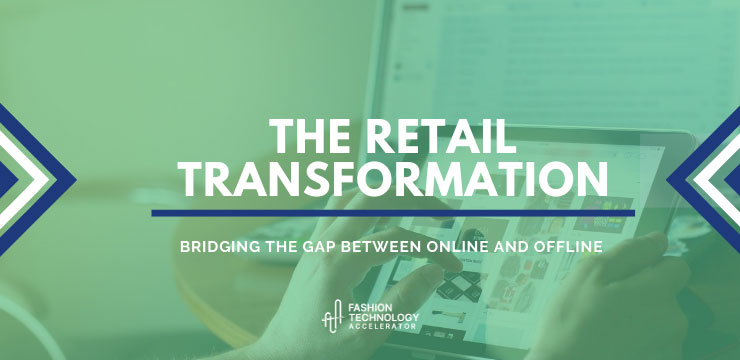
Digital transformation for retail is possibly the biggest challenge (and opportunity) exposed by the insurgence of COVID-19.
As retail continues to reopen across the globe, we start seeing more and more proof that the changes forced on the sector by the pandemic have turned out to be long-term trends that we cannot ignore or wait out.
McKinsey continued to track consumer sentiment throughout the period, and even though the lockdown affected different regions in different ways, certain themes have pursued and resurfaced in their research:
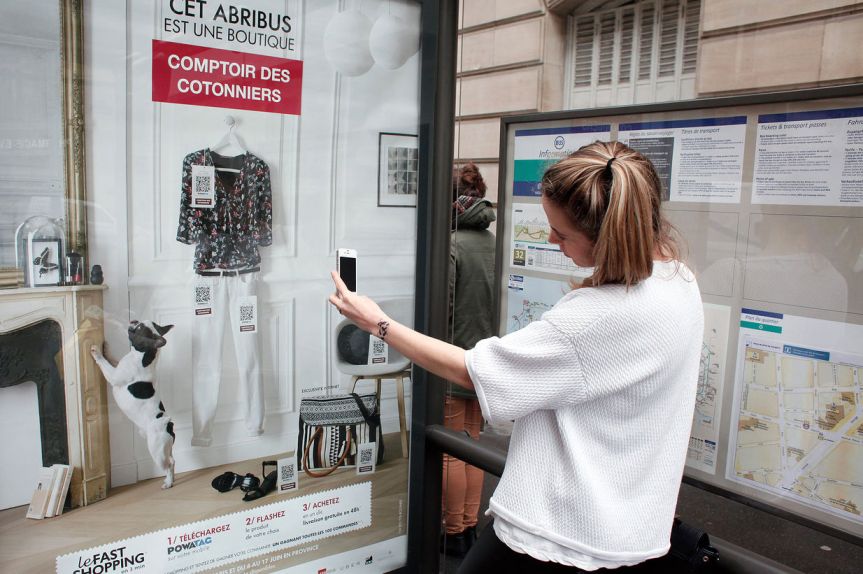
Indeed, the new demands to the retailers are quickly starting to put more pressure on brick-and-mortar stores to transform and adapt their operations.
These heightened expectations, stemming from the various opportunities online shopping is offering from personalisation by identifying the customer right at the start of the journey to rich and exciting content, speed and efficiency of communication – all of this has put offline retail in a position where brands have to prioritise digital innovation. It’s become a question of ‘disrupt or be disrupted’.
…It’s dramatic, for example, when you think how Amazon treats you as a customer from the very beginning. It has a very high context experience. In physical stores, you are identified only when you’re paying, and sometimes you are not even buying. You’re not recognised before, and so you’ve lost all that interaction. Experience is magic if it happens right from the start.
Dimas Gimeno (Chairman, Skintelligence ex President, El Corte Inglés) – quote from the Panel Discussion on Acceleration in Digital Innovation, hosted by Mercaux in July 2020
Add numerous hygiene regulations and safety measures into the mix, and you get consumers who have never been more careful when deciding what to buy and how – also according to the latest EY research.
Experts and retailers unanimously confirm – all of the above factors combined accelerated 5 years of digital adoption in just 8 weeks, giving brands an opportunity to meet and exceed demands of the new reality through digital transformation in-store.
Our partners at Mercaux, for instance, see this period as a unique time to collaborate and help brands build their strategy for bringing technology and innovation to the top of their transformation roadmaps.
Mercaux is a company that forms the ‘backbone’ for a retailer’s in-store digital transformation journey. They help retailers create superior customer experiences through omnichannel and unified commerce digital capabilities. They equip Sales Associates and stores with the digital tools they need to serve and sell smarter, across the entire path-to-purchase journey in-store.
The solutions are operated by Sales Associates using a tablet-based app or self-served by customers using touch screen kiosks or their own phones via a web-based App. All the solutions are all managed by a HQ Platform and help retailers provide a highly personalised shopping experience.
The platform gives unique data and insights for consumers’ behaviour and preferences in-store which helps open the black box of customer in-store journey so that retailers can manage and prioritise their service models.
Their core solutions Sales Assist & Omnichannel and Clienteling equip staff with instant access to product information, company-wide inventory, digital content, customers’ profiles and wish lists, through to mobile checkout capabilities.
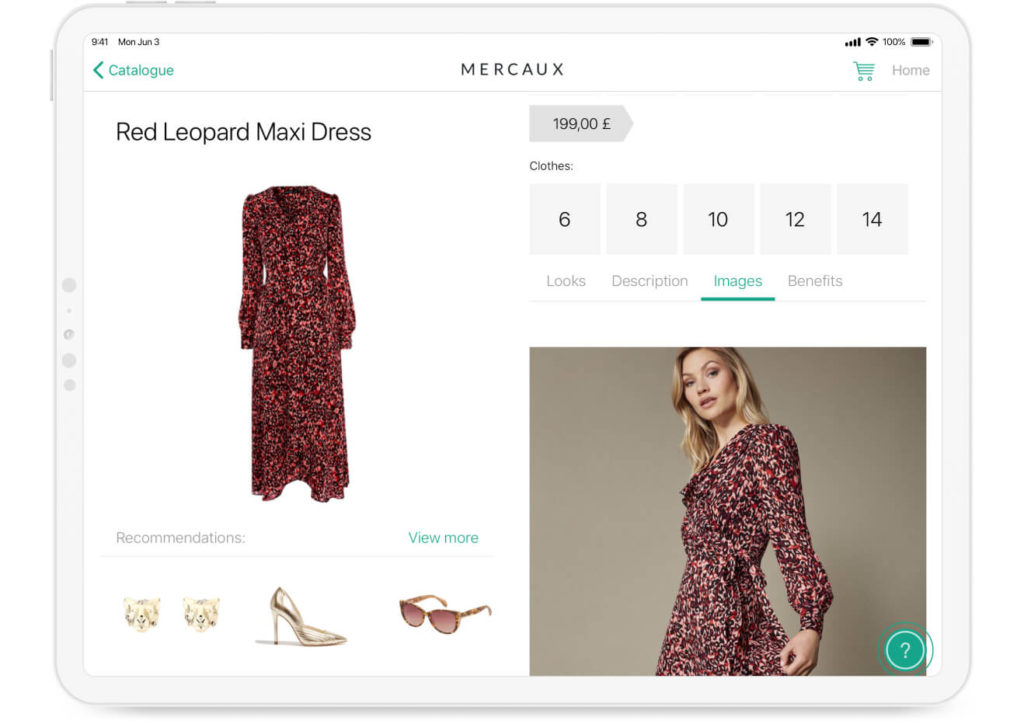
Detailed analysis of customer behaviour and sales associate engagement is possible through the app, to be matched with an online catalogue and online suggestions available through shopping.
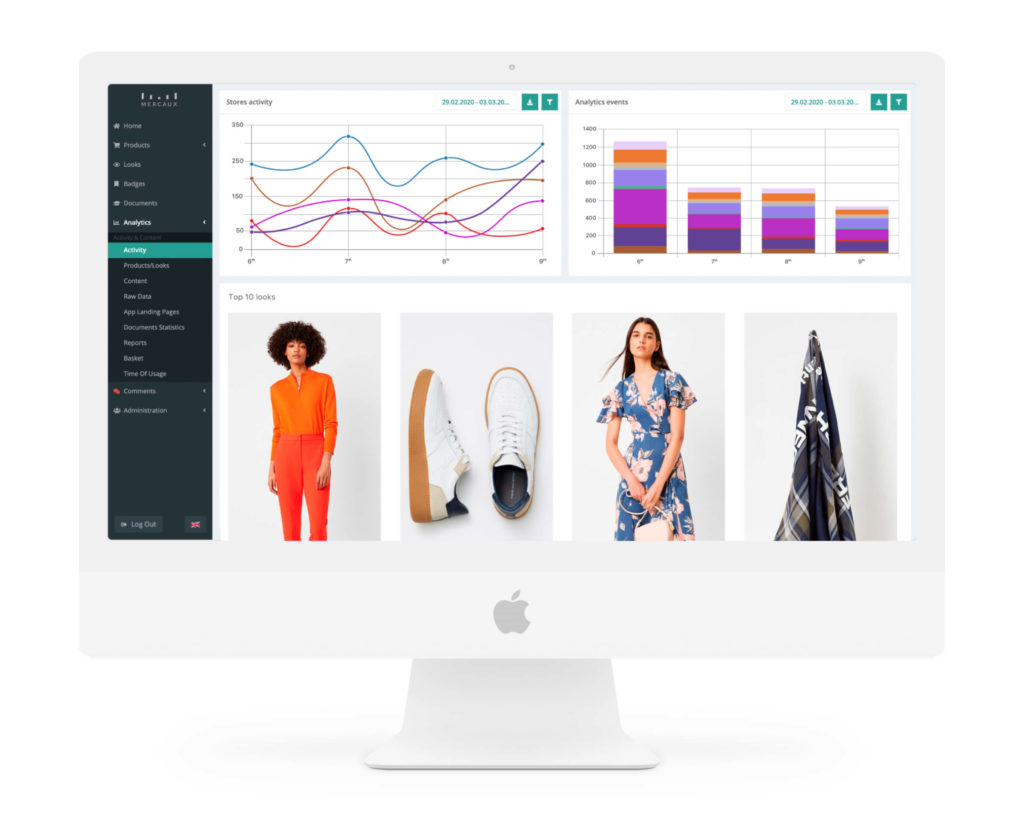
Personalised approach with clienteling module can indeed extend the experience beyond in-store visit, hence the creation of the online bridge and related journey.
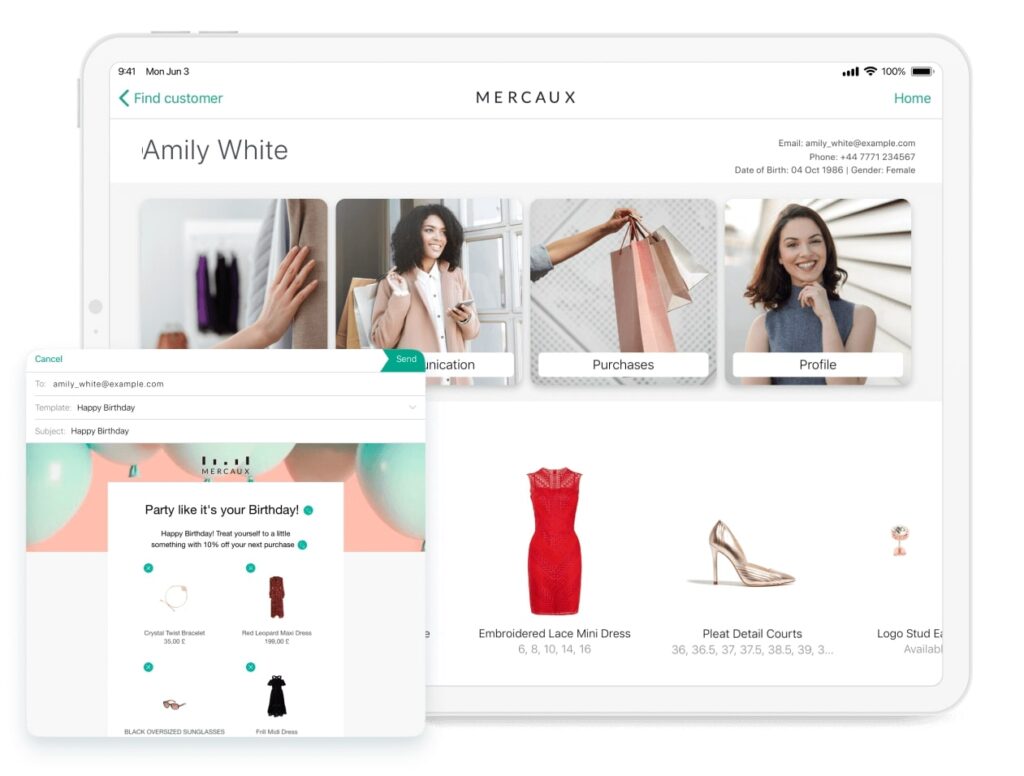
Over the past few months, the company has also quickly adapted and extended their suite of solutions to address the changing demands of customers in the new post-lockdown world to support retailers deliver new service models in-store.
With the help of Mercaux’s self-service solutions, retailers will be able to give customers full control over their own experience in the form of self-service kiosks or through the launch of a brand new solution – the B2C Web App.
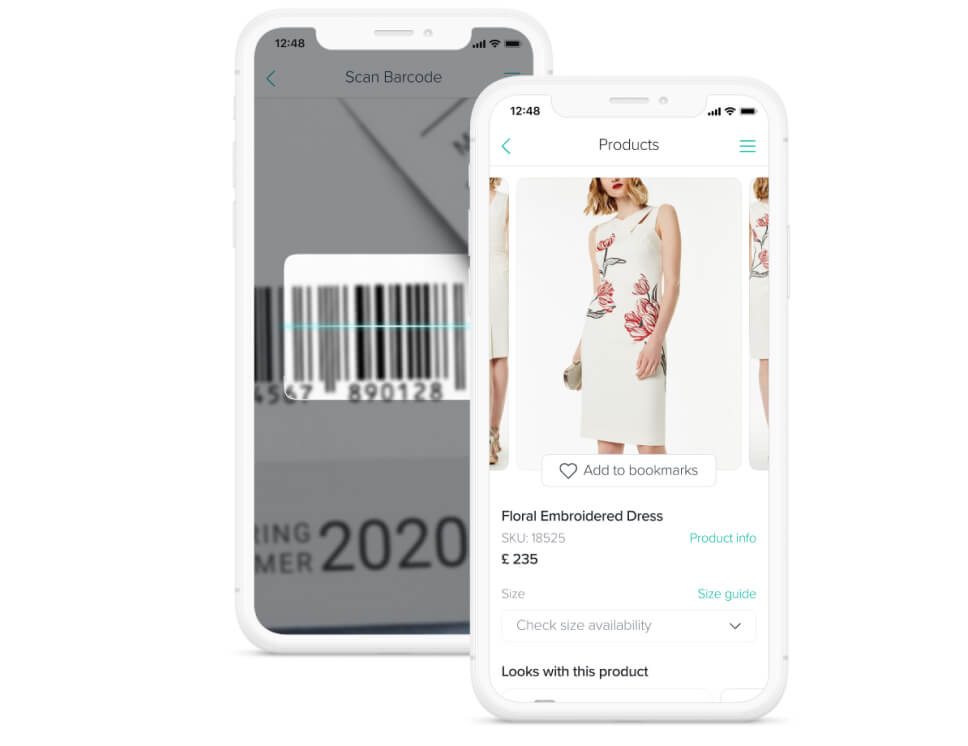
For those customers that want to keep their distance in-store – the app will provide them with all the functionality found in Mercaux’s Sales Assist solution, such as scan a barcode (for product info and availability), browse catalogue and bookmark favourites for later purchase.
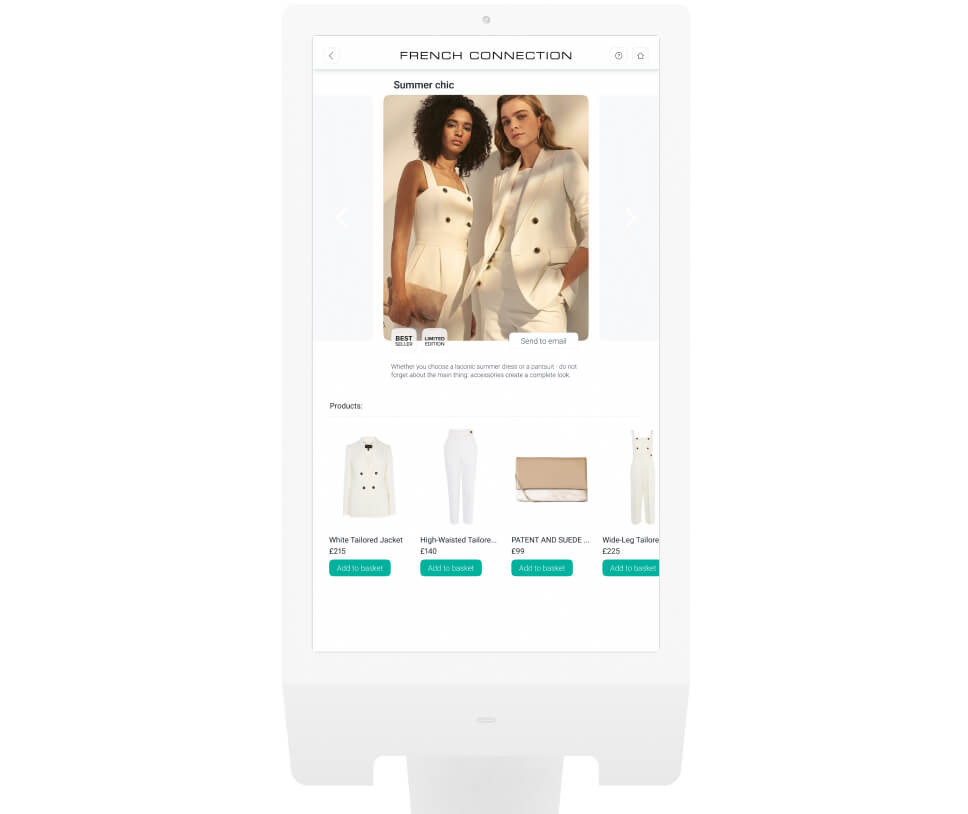
For customers that are uncomfortable engaging with staff, self-service kiosks provide all the functionality of Sales Assist and Omnichannel. If they want a product brought over, or wish to ask a question, they can request the help of a Sales Associate from within the display or self-checkout for a fully socially distanced experience.
The new ways for store teams to communicate and build stronger relationships with customers remotely (beyond simply using email) are in constant evolution. That’s the main reason why the Company has also included SMS and WhatsApp functionality to their Apps recently.
_______________
Mercaux supports customers in Europe, the Americas, Middle East and Asia, and throughout their work with clients, they’ve seen a quick adoption of the tool by the sales associates as the UI is so intuitive, resulting in higher customer LTV, reduced lost sales, larger basket sizes (UPT) and sales uplift.
If you would like to get in touch with us and Mercaux, to learn more about initiatives and future programmes dedicated to digital transformation for the retail, please do not hesitate to fill the form here below.

Giusy Cannone is Chief Executive Officer of Fashion Technology Accelerator.
She is the reference point for FTA’s corporate projects, also creating business connections for startups in the Acceleration Program and mentoring participants of our Masterclasses,